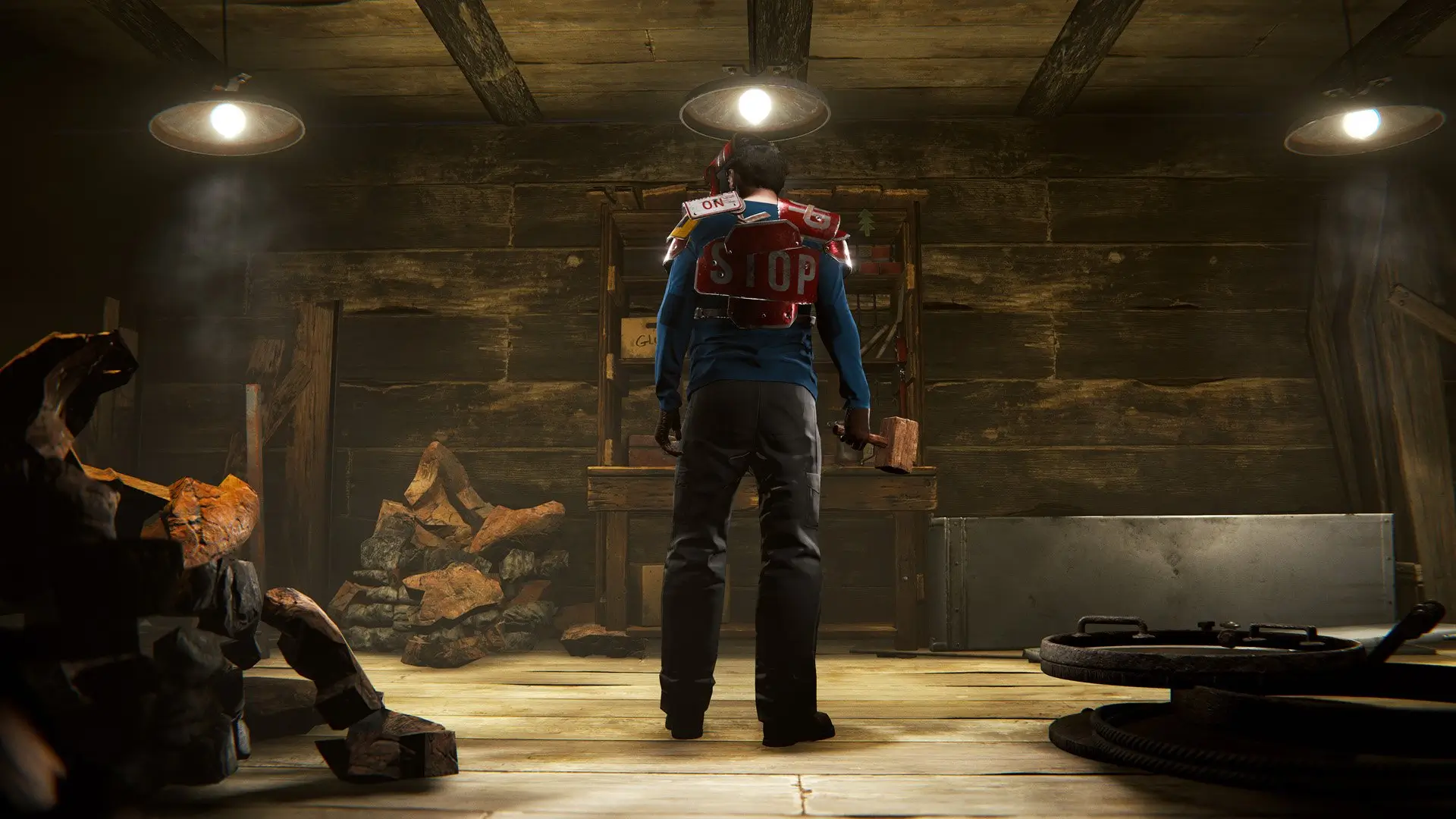Outpost & Drone Delivery: The Basics
The Outpost is a no-PvP safe zone and logistics hub with terminals for ordering via drones. You open a map of public vending machines (NPC and player-run), add items to your cart, and place an order. Courier drones then fly to the chosen vendor and bring the goods back to a pickup container by the terminal. The contents are reserved for you for a limited time, after which they can become available to others. The whole point is to move loot delivery off dangerous roads and into a predictable supply queue where you control timing and risk instead of running half the map with a full inventory.
Why does this matter for trading? Because you buy where it’s cheaper and closer, and you pick up where it’s safest. Even if you craft a lot yourself, these “buy windows” let you patch resource gaps with a click, without derailing your wipe or daily goals.
Setting Up and Securing a Base Drone Station
If you run your own shop, dedicate a small room for the terminal (drone station) and pickup. Core rules: a clear top-down landing shaft (no ceilings over the approach), a short unloading pocket, a two-door airlock, a camera/motion sensor, and a separate power line. Keep your storefront and scrap receiver closer to the perimeter, and push your main storage deeper so a single push can’t reach your resources. Simple “Pick-up only” labels and a busy/idle light help keep the line moving—and your delivery cycle too. If you sell publicly, double-check your vending machines are open to the sky; courier drones need unobstructed access.
PvP-Safe Resource Delivery
For safer trading, split purchases into functional “baskets”: consumables (syringes/ammo), bulk resources (stone, metal, wood, components), and rare items (mods, tools, décor). It’s usually best to place each basket with a single vendor so the system merges it into as few flights as possible and you get priorities first. Show up light, free inventory space in advance, and leave as soon as the order flips to “ready for pickup.”
In clans, assign roles: one places orders, one watches the exits and escorts, one preps unloading at base. That discipline reduces random encounters and speeds up the whole pipeline.
Smarter Drone Routes & Timing

You don’t draw the drone’s path manually, but you influence efficiency by the vendor you select. The heuristic is simple: closer is faster; big NPC shops are more reliable; vendors with open, unobstructed storefronts are more consistent. Avoid hotspots and “highways” around popular monuments. Place big orders during off-peak hours—queues are shorter and you draw less attention at the terminal. Keep two or three backup vendors on the opposite side of the map; if one runs dry, switch immediately so your building/raid schedule doesn’t stall.
Interception & “Shooting Down” Drones
The real vulnerability isn’t the drone mid-flight—it’s the pickup moment and location. Build a pickup protocol: grab instantly, leave along a pre-planned route, and don’t broadcast your inventory at the terminal. Public sellers should place machines with open sky but narrow approaches and a camera, so even if someone tries to “read” your deliveries, reacting in time is harder. In short, protect the procedure, not the aircraft: the shorter the chain “arrive → pick up → exit,” the less chance anyone has to mess with your supply.
Outpost Trading Risks
Most issues are operational. UI mistakes (wrong shop, wrong quantity) cost extra fees. Queues mean longer exposure and curious eyes on your cart. Player shops with a roof block drones entirely. And there are always scouts noting when and what you collect to ambush you on the way out.
Combining Drones with Other Transport

Drones shine for the “critical minimum”: meds, ammo, mods, tools—things that keep you operational but don’t weigh much. True bulk (stone, metal, wood) is more efficient by ground vehicles or minicopter—tonnage beats handoff speed there. Best practice is hybrid: send the essentials by drone, move the mass by an alternate route. If your base is far, stage a mid-way stash with a couple of kits and basic building mats to cushion surprises. In clans, split duties—logistics, pilot, security—and sync around expected arrival times.
Common Mistakes & How to Avoid Them
1) Roofed storefronts (drone won’t pick up). Drones need clear vertical access. Any roof/overhang cancels the run. Player shops can get “closed” after they’re listed—before big buys, place a tiny test order. If it doesn’t go through, switch vendors. For your own shop: leave the storefront open to the sky, mark it “No Roof / Drone Access,” and recheck after rebuilds.
2) Too many parallel orders from different vendors. Each shop spawns its own drone; you can only collect when the last one returns. Order sequentially, and merge items with the same seller into one batch.
3) Pricing traps. Window price isn’t total cost—add per-trade fees, stack sizes, and duplicates. Calculate net: (price × qty) + (fee × trades), compare vendors by the whole basket, and track your personal “net minimums” for key slots.
4) Predictable timing. Showing up at the same minute makes ambushes easy. Shift pickup windows, rotate terminals (Outpost ↔️ Bandit Camp) and exit routes, split urgent vs. bulk baskets, and occasionally do “dry runs” with no pickup to throw off watchers.
Pre-Order Checklist
Vendor open and unroofed; baskets split (consumables/building/rare); final net price OK (fees + stacks considered); backup vendor and exit route ready; pickup room prepared; team knows their roles.
Bottom Line
Solid logistics are built from simple blocks: a clean vendor list, a proper base pickup room with a clear landing shaft, smart vendor choice that shortens drone time, and discipline at the terminal. Layer in hybrid transport, trading safeguards, and anti-camp habits, and your trading stops being a gamble. With the right setup, drone delivery becomes a reliable conveyor—lower risk, faster build tempo, and a server pace that you set rather than chase.
🎮Launch the drone and scoop your bonuses on Cobalt Lab!




